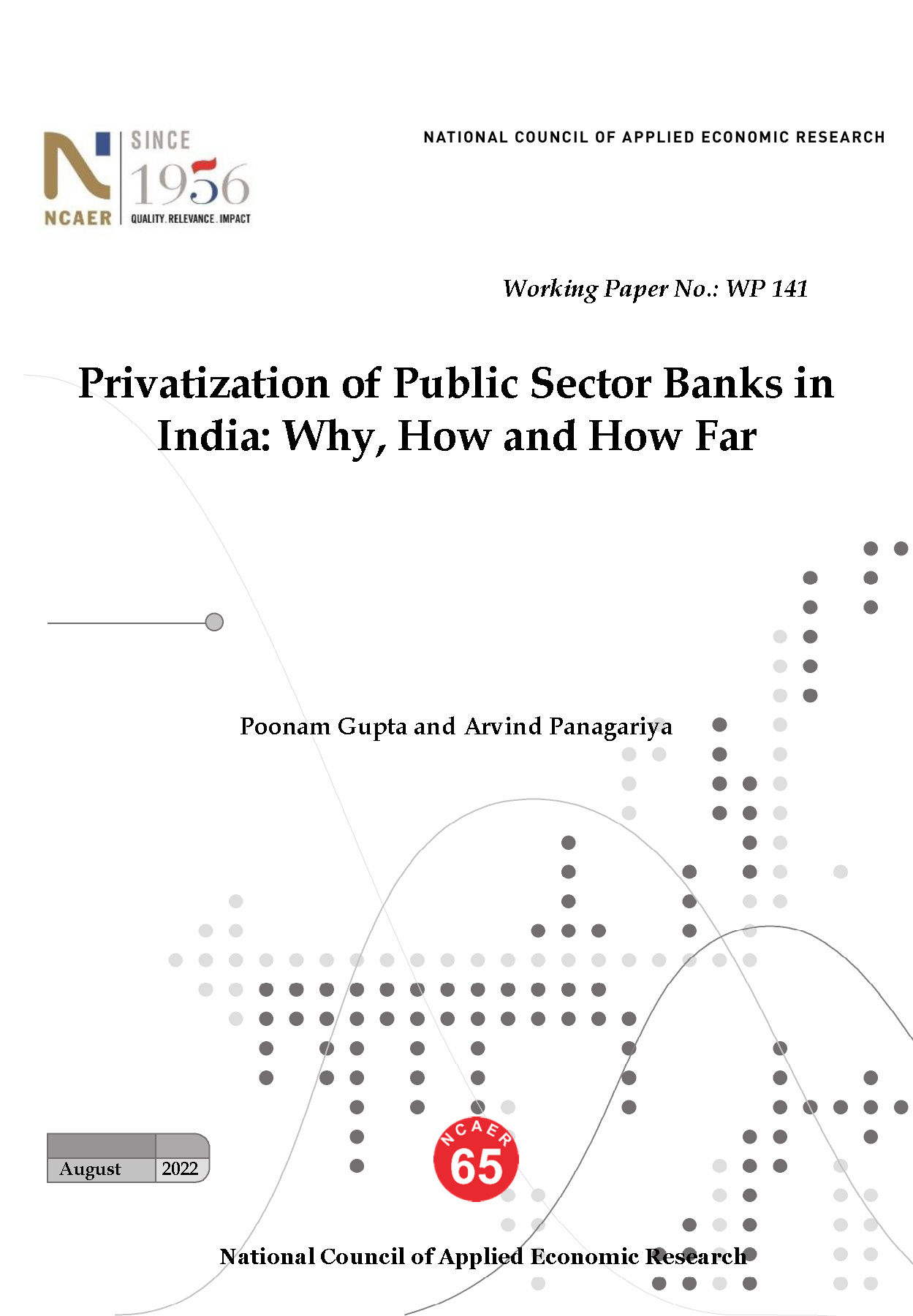Privatization of Public Sector Banks in India: Why, How and How Far
Poonam Gupta
Arvind Panagariya
August 2022
Banks play a critical role in economic growth. In India, the banking sector, dominated by public sector banks (PSBs), has underserved the economy and their stakeholders. The under-performance of PSBs has persisted despite several policy initiatives during the past decade. Meanwhile, private banks have further improved their performance and have gained significant market share. In this paper, we have made the case for privatization of PSBs. Due to its better performance and adhering to the development view of the PSBs, we propose that the State Bank of India (SBI) may remain under government ownership for now, but all other banks should be privatized. In order for them to set an example for the success of future privatizations, the first two banks for privatization should be the ones with better asset quality and higher returns. The most critical element for privatization to succeed would be the withdrawal of the government from the post-privatization board of the bank. The paper proposes a couple of different pathways to successfully transition the sector toward private ownership. It cautions that the status quo will result in further erosion of the market share of PSBs toward oblivion, while impeding India’s economic growth and inflicting substantial costs onto the depositors, firms, taxpayers and the government as their majority owner in the interim.
National Growth and Macroeconomic Centre







